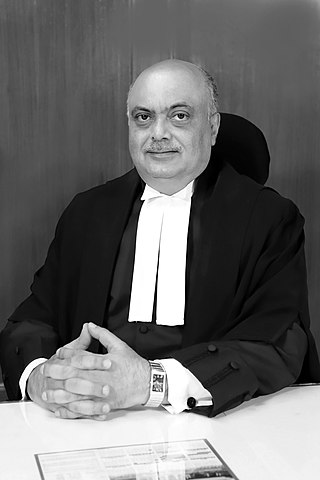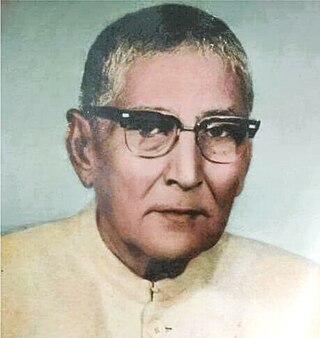Education and Service Law
In Dr.Pramod Kumar Singh v. The State of Bihar &Ors. [19] a writ petition was filed for quashing the appointment of two vice-chancellors,namely of Veer Kunwar Singh University,Arrah and Magadh University,Bodh Gaya on the ground that the appointment made by the Chancellor of the Universities of Bihar was in violation of Section 10(2) of the Bihar Universities Act,1976.
Before the Supreme Court's judicial intervention in August 2013,unlike the University Grants Commission Regulation,there was no statutory requirement under earlier versions of the concerned State legislations (Bihar State Universities Act,1976,Patna University Act,1976) for constituting a Search Committee to shortlist a panel of likely candidates from which the Chancellor would have appointed vice-chancellors in consultation with the State government. [20] The court held that the word 'consultation' in the statute implied effective and conclusive deliberation on a subject. It should be duly recorded,unlike an informal chat. Justice Tripathi judicially determined the legal force of the term 'consultation' under Section 10(2) pertaining to the appointment of vice-chancellors in Bihar universities.
Consultation with the State is a must. Consultation with the State must be effective. Consultation also means placing of materials between the consulting and the consulted party. There has to be proper deliberations by producing all materials duly recorded to show that such exercise was carried out and there was application of mind with regard to all those persons who may be otherwise eligible. If all these elements are missing and there is no evidence in this regard in existence,then the Court will have no hesitation in recording that any appointment made,may be at the behest or at the level of the Chancellor,would be in clear breach of the requirements of Section 10(2) of the Act.
There was no absolute power of the Chancellor to make an appointment to the post of Vice-Chancellor or Pro-Vice Chancellor at his level without consultation with the State within the meaning of the law. Therefore,on finding no evidence of consultation of the Chancellor with the state government,Justice Tripathi quashed the appointments. Commenting on the responsibility of the State and the Chancellor in improving the quality of higher education,Justice Tripathi observed that:
This Court has the unpleasant task of reminding both the State as well as the Chancellor that the time has come to put their head together and make a determined effort to pull the higher education out of the morass it is in. They can do wee bit of service by appointing non-controversial,competent,honest persons with impeccable reputation having due diligence to run the affairs of the Universities specially on the post of Vice-Chancellors and Pro-Vice-Chancellors by adhering to the requirements of the law as envisaged under Section 10(2) of the Act and getting rid of ad hoc arrangements. The sooner the exercise is started the better it shall be for one and all including the stakeholders who have an honest interest in the betterment of higher education,for sake of the future of the generation next. For,after all the next generation is an impatient generation who have dreams in their eyes and hopes in their heart and are racing against time to reach where they want to with the best of education. We can't grudge them. In fact we all owe it to them.
In Dr. Bimal Prasad Singh v. State of Bihar, [21] similar instances of corruption and favour in appointments of principals in Magadh University were challenged before the Patna High Court. Justice Tripathi quashed the appointments of 12 principals of the University on the ground of irregularities in their appointments.
Service Law
In Koshi Project Workers' Association and Ors. v. The State of Bihar and Ors., [27] two writ petitions were filed challenging orders by the State Government for cancellation of promotion of the petitioners as majdoors,i.e. Class-IV permanent government employees. The judgment provides clarity on differences between a "work-charge establishment" and "permanent establishment of the State". The Division Bench judgment upheld promotion of the Petitioners,and dismissed cancellation of the promotion notice by the State. The reasoning was that the Petitioners became permanent Government employees upon completion of one year of service in the work-charge establishment based on rules incorporated in P.W.D. Code Volume-1 by the State Government in 1949 relating to conditions of work-charge establishment including post of permanent nature. The concerned rule of the State Government stated that an employee working in the work-charge establishment for a period of 12 months in a year and for a long and indefinite period,was deemed to have become a member of the permanent establishment of the State Government.
In light of the subsequent government notification in 1950,revised condition service of work-charge establishment issued by the Government in 1949 became legislative service rules of the State Government. Additionally,this decision of the Government had not yet been cancelled or repealed by any enactment. The judgment accordingly held that the Petitioners became,"by fiction of a law,employees of the permanent establishment,although as majdoors,i.e. Class-IV employees." There was "no just reason for holding out in the orders impugned in the writ petitions that promotions granted to the petitioners were inappropriate."
In Bibhuti Bhusan Saha and Ors v. The Union of India &Ors., [28] writ petitions were filed challenging orders for termination of the Petitioners as employees of National Cooperative Consumers' Federation of India Ltd. (NCCF). The Petitioners' service was terminated on grounds of swindling money based on an order issued by the President of the respondent organization while exercising power under Regulation 33(d) of the Bye-laws of the NCCF.
Justice Tripathi,perusing the relevant provisions,held that the charges against the Petitioners "was not an emergent situation." They were not liable to be terminated from service by the President on the basis of an emergency provision,without the subsequent approval of the Board of Directors. He held that:
The power under Regulation 33(d) is not to be usurped by the President by snatching away what is vested in a disciplinary authority which is the Managing Director in the present case. …There seems to be force in this contention of the petitioners. Further the order does not even indicate the emergent situation for exercise of power under Regulation 33(d).
Hence,the order of termination in this case was quashed by the Court. Writing the judgment for himself,Justice Tripathi stated:
The enthusiasm of the President in exercising such powers is not appreciated by this Court. An All India Organization having branches across the country will have some financial or disciplinary problems of this kind because of the misconduct of its employees but whether such action is an emergent situation of the kind where every other authority has to surrender its power to the President,cannot be appreciated or accepted as a cogent reason,for exercise of authority under Regulation 33(d).
In Manoj Kumar v. The State of Bihar, [29] writ applications were filed by the candidates whose names did not figure in the result of the preliminary examination declared by the Bihar Public Service Commission (BPSC) for the 52nd to 55th batch. As per facts of the case,the PT examination conducted by BPSC was not fair in terms of the questions,which were set for the examination. The master answer sheet was provided with incorrect answers,incorrect questions as well as right questions with incorrect answers. After mass protests,the Commission declared that they could not reconduct an examination of such magnitude owing to it not being an easy exercise,and delay already caused in the recruitment process for three batches. Justice Tripathi pronounced that BPSC had to re-declare results of the preliminary examination after a fresh evaluation on the basis of recommendations of the second Expert Committee,and that had to form the basis for the conduct of the mains examination as well,which was yet to be conducted. He observed that:
The Court therefore comes to a considered opinion that a fairer approach to the whole problem would be by permitting BPSC to carry out a fresh evaluation of all the answer sheets on the basis of their stand emerging from the opinion of the second expert group. If such an exercise is permitted then it will amount to a fair evaluation of all the candidates without giving any unfair advantage to either successful candidates or the unsuccessful ones because they will all be tested on a common platform.
Clarifying the applicability of the judgment,Justice Tripathi stated that:
It is made clear that none of the successful candidates earlier declared successful on the basis of declaration of the result would be ousted from the list of such candidates who will be entitled to sit for the mains examination. If the exercise brings in more candidates within the zone of successful candidates by being permitted to sit for the mains examination,so be it,but the exercise shall not be done to the detriment of any of the successful candidates whose results have already been declared earlier.
In Reeta Srivastava and Ors. v. The State of Bihar and Ors., [30] a group of writ applications had been filed to deliberate whether the Petitioners were eligible for promotion to Subordinate Education Service from Lower Subordinate Education Service,on the basis of the qualification of a Sahityalankar,which was said to be equivalent to graduation,from an institution known as Hindi Vidyapith,Deoghar. The Court considered contentions of the State Government that the degree of Sahityalankar was not equivalent to graduation for every purpose or whether the Petitioners had a right to be promoted on the basis of such a qualification to the Subordinate Education Cadre. The Petitioners had been appointed as school teachers initially on the basis of matriculation as a minimum qualification,part of the Lower Subordinate Education Service. They later claimed eligibility for promotion to the next higher cadre of the Subordinate Education Service for which the minimum educational qualification required was graduation. The gradation list issued did not include names of the Petitioners with a Sahityalankar's degree from Deoghar Hindi Vidyapith but included people with a graduation degree for promotion to Subordinate Education Service. Claiming this as a ground for discrimination,the Petitioners approached the Patna High Court for a judicial direction with regard to their right for such promotion. Justice Tripathi observed that:
There is overbearing evidence that voluntary organization like Hindi Vidyapith,Deoghar has a role in promotion of the national language i.e. Hindi and the degrees or diploma which are offered by them had a limited objective behind it. Therefore,such degrees cannot be raised to the level of graduation as if the said voluntary organization is a university having all its attributes even though there is no recognition by any statutory body such as U.G.C. etc.
Saroj Kumar and Ors. v. The State of Bihar and Ors. [31] dealt with the appointment of the Petitioners as Panchayat Teachers in light of their persisting contracts as Panchayat Shiksha Mitra under the Central Government Scheme,Sarva Shiksha Abhiyan. The notified rule of the Bihar Government relating to appointment of Bihar Panchayat Primary Teachers (Employment and Service Conditions) Rules in 2006 stated that all those persons whose contract subsisted as on 01.07.2006,by a deeming fiction created in Rule 20 became a Panchayat Teacher,a permanent engagement under the State. The terms and conditions of service of such individuals were now going to be governed by the 2006 Rules. Various allegations came to be made against Panchayats about the manner in which contracts for the post of Panchayat Shiksha Mitra were initiated.
An issue was raised against selection of the Petitioners leading to annulment of their appointments by the Teacher Employment Appellate Tribunal,Supaul constituted by the State Government,on the ground that their engagement as a Panchayat Shiksha Mitra was not done properly.
Justice Tripathi elucidated that the status of the Petitioners as "Panchayat Teacher cannot be taken away by such adjudication by reopening the issue of an illegal engagement of Panchayat Shiksha Mitra after so many years,especially when such persons got benefit of the status by virtue of a statute or rule which has never been challenged to be arbitrary or violative of any constitutional provision."
He concluded that "the removal of any person,who had been made a Panchayat Teacher after 1.7.2006,can only be made within the parameters of the 2006 Rules. Any action taken thereafter against their engagement as a Shiksha Mitra will no longer affect their right to continue on the post of a Panchayat Teacher,even if it was on the basis of engagement as a Panchayat Shiksha Mitra which was a contractual engagement…"
Similarly,in the case of Md. Najmuddin v. State of Bihar, [32] Justice Tripathi upheld the right of Petitioners of receiving equal pay who pleaded discrimination in the matter of grant of pay parity and allowances,which were available to similarly situated ministerial employees of Rajendra Agriculture University,Pusa,Samastipur. In this case,Justice Tripathi held that the State and the University Syndicate must work jointly for the welfare of employees,and extend the benefit across the board to every employee instead of discriminating between the employees who had approached the Court and those "who have silently suffered the discrimination." The Court also recognised that issuance of such a notification where for the same set of work and responsibility,identical set of employees were getting two different remuneration and pay scale,which was neither a healthy position for good administration nor met the standards of Articles 14 and 16 of the Constitution of India.
In Bishhat Ram Sahu v. State of Chhattisgarh,Through The Secretary,Forest Department,(C.G.) &Ors. [33] the Appellant was terminated from the service of a forest guard on the pretext that he did not fulfil the eligibility criteria to be appointed. Justice Tripathi,while addressing the question of whether the appellant had committed fraud or not,held that he was appointed based on prior experience and not on the requirement for qualification of being 8th Pass. He pronounced that the respondents' argument that a minimum 8th pass was required for the appointment was incorrect. It was not an instance of appointment per se,but rather a regularisation of the Appellant. Since,the Appellant along with similarly situated persons,had worked for a long period,earned him the consideration for regularisation. The State based on the recommendation of the competent authority had made the Appellant a Forest Officer. Justice Tripathi opined that the charges brought against the Appellant,which became the reason for his dismissal after more than 22 years of service,are a misuse,if not an abuse of power.










